Resources
Here you can search external resources from STOP Spillover's experts (tagged in blue) and resources developed by the STOP Spillover project (tagged in red).
We found 142 resources.
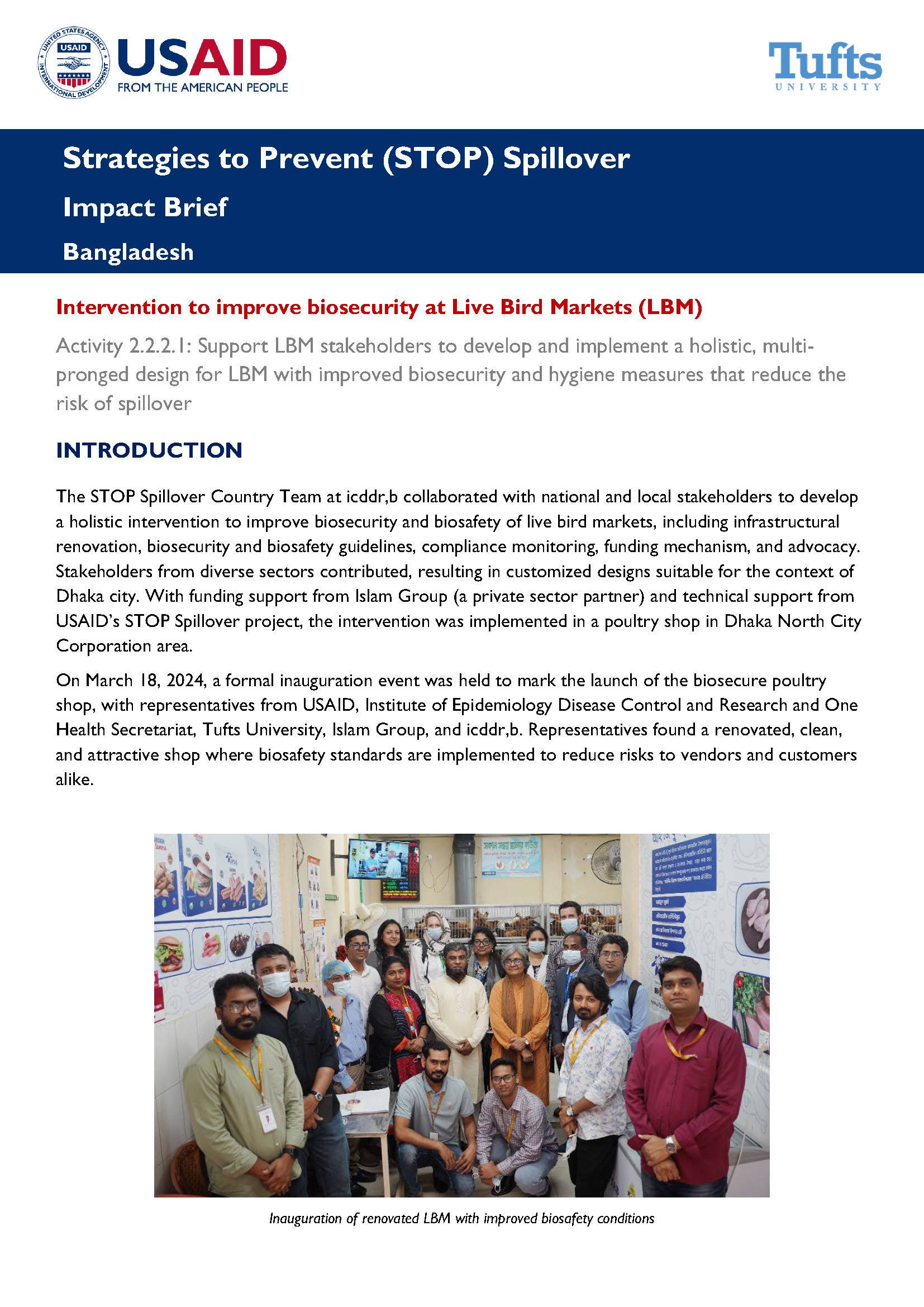
Impact Brief: Intervention to Improve Biosecurity at Live Bird Markets
This brief describes the STOP Spillover Bangladesh County Team's collaboration with national and local stakeholders to develop a holistic intervention to improve the biosecurity and biosafety of live bird markets.
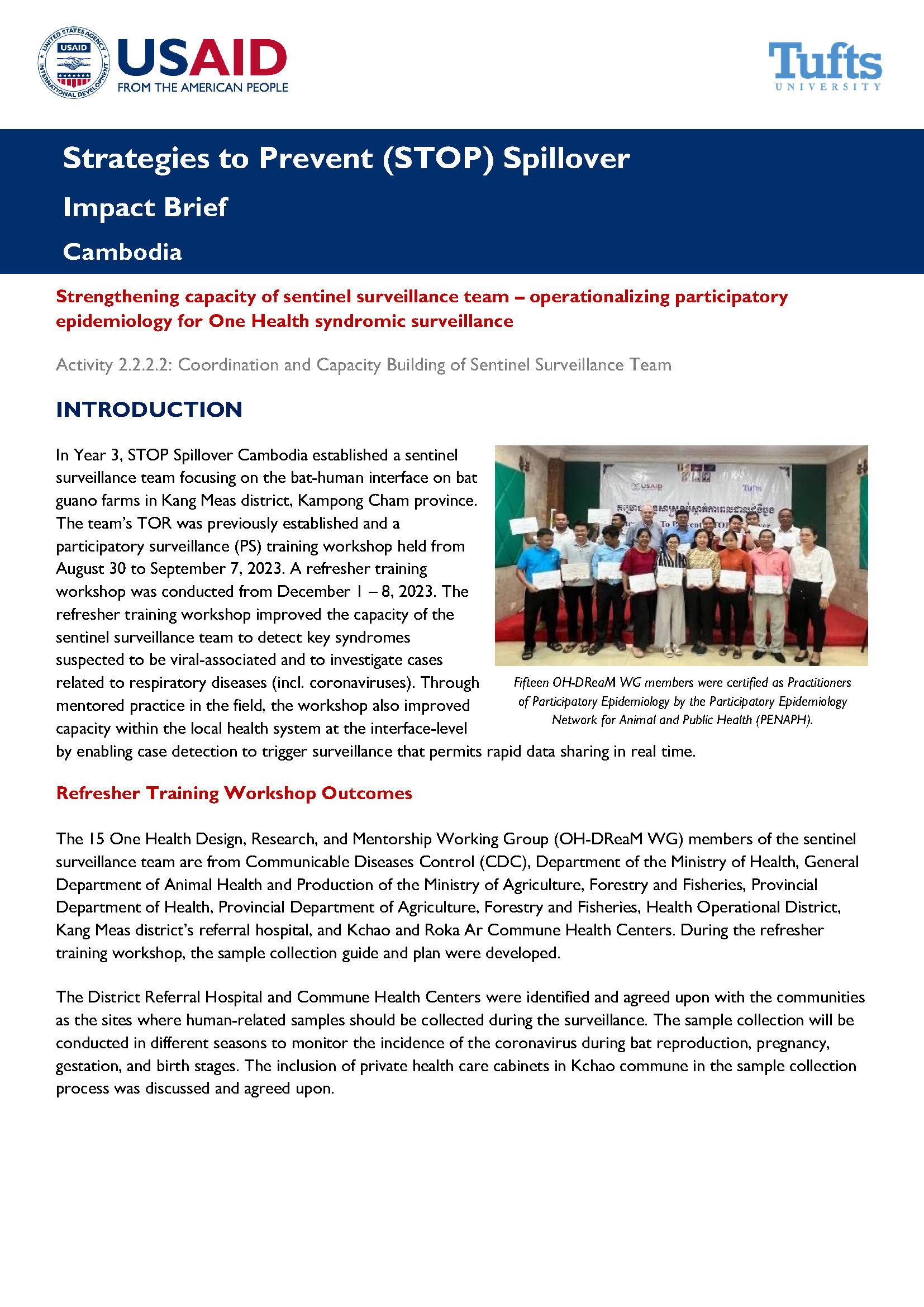
This brief summarizes a participatory surveillance refresher training to improve the capacity of a sentinel surveillance team to detect key syndromes suspected to be viral-associated and to investigate cases related to respiratory diseases, including coronaviruses.
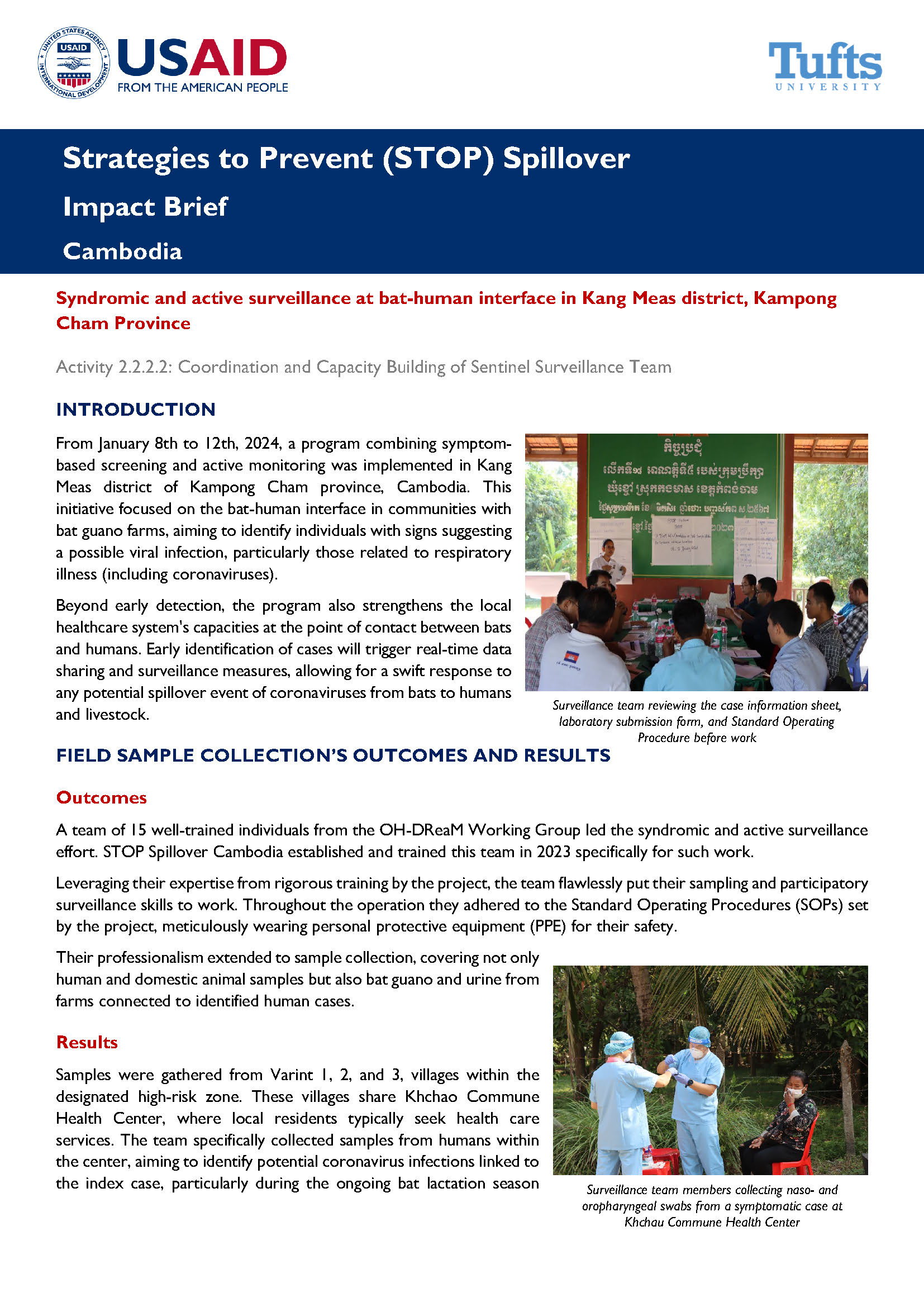
This brief describes symptom-based screening and active monitoring that focused on the bat-human interface in communities with bat guano farms in the Kang Meas District of Kampong Cham province, Cambodia. The initiative aimed to identify individuals with signs suggesting a possible viral infection, particularly those related to respiratory illness, including coronaviruses.
This brief describes a three-day monitoring and technical support effort in the bat guano producing communities in Kang Meas District in Kampong Cham province. The purpose of the activity was to provide support to reinforce the adoption of biosafety and hygiene practices, and identify challenges and barriers to adopting and sustaining improved practices.
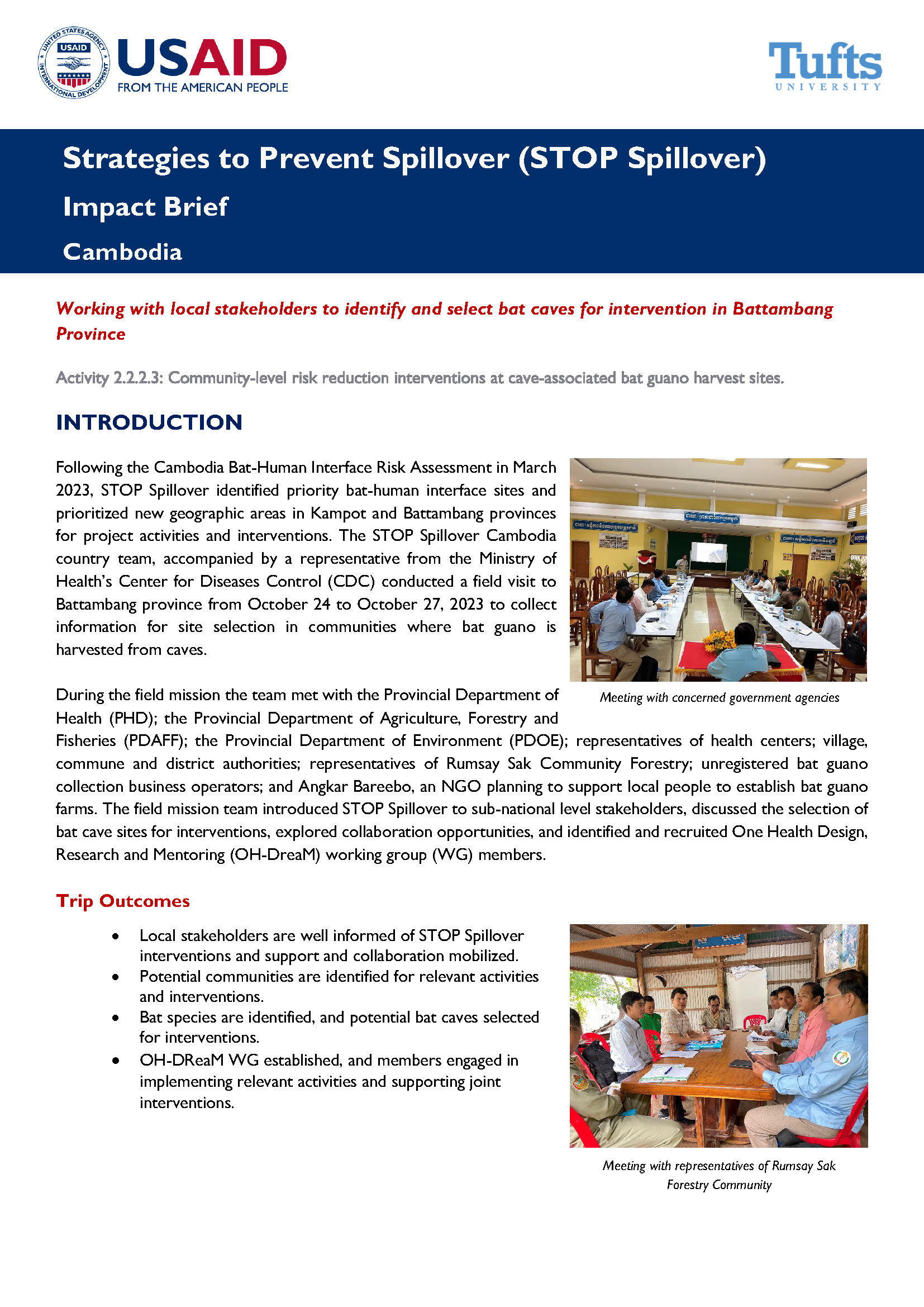
This brief describes a field visit by the STOP Spillover Cambodia Country Team to Battambang province to collect information for site selection in communities where bat guano is harvested from caves.
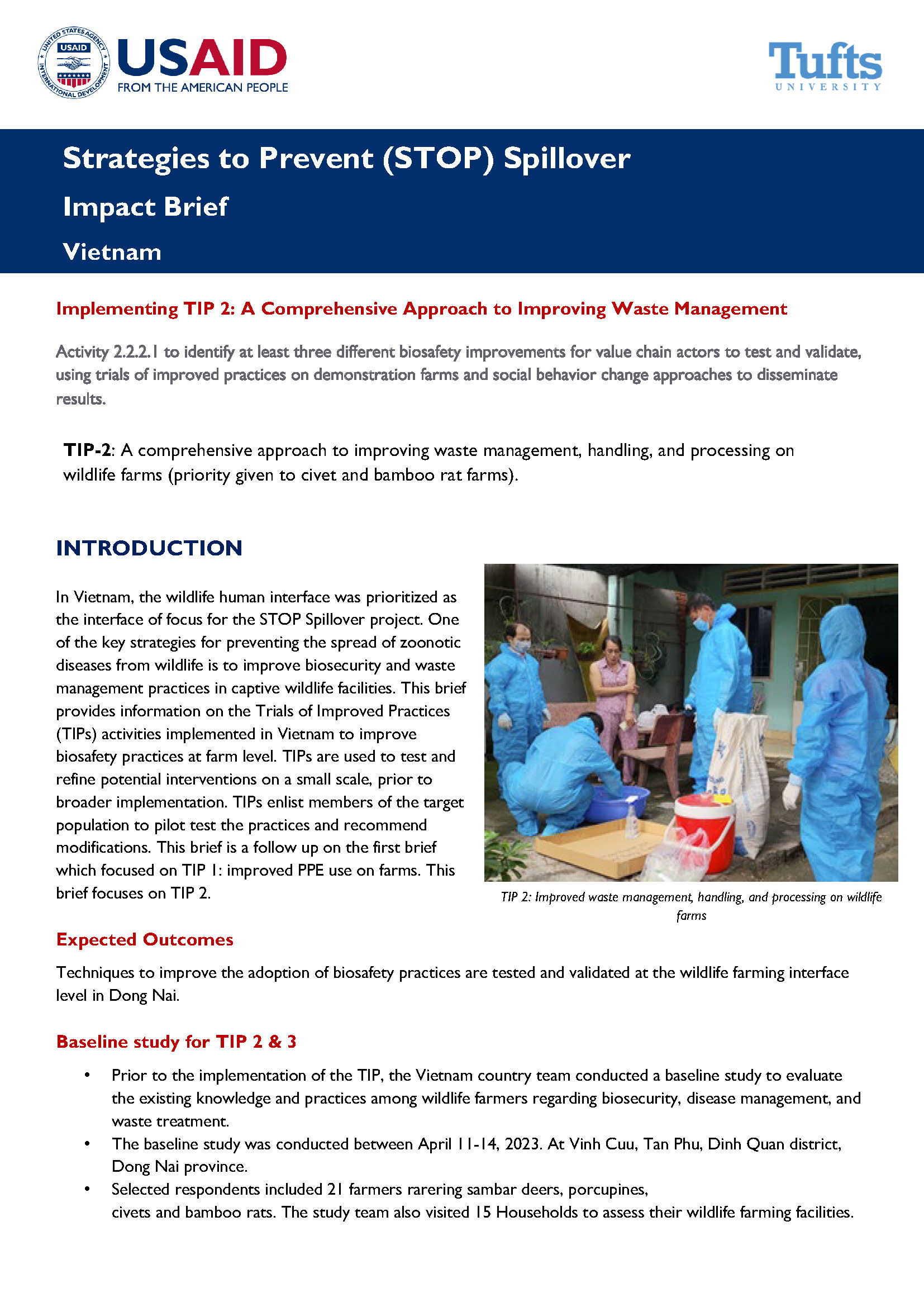
Impact Brief: Implementing TIP 2: A Comprehensive Approach to Improving Waste Management
This brief describes implementation of a TIP (Trial of Improved Practices) related to improving waste management, handling, and processing in wildlife farms in Viet Nam. Following a training, 13 civet-farming households and one bamboo rat-farming household began to practice manure treatment using composting trays with fermented probiotics.
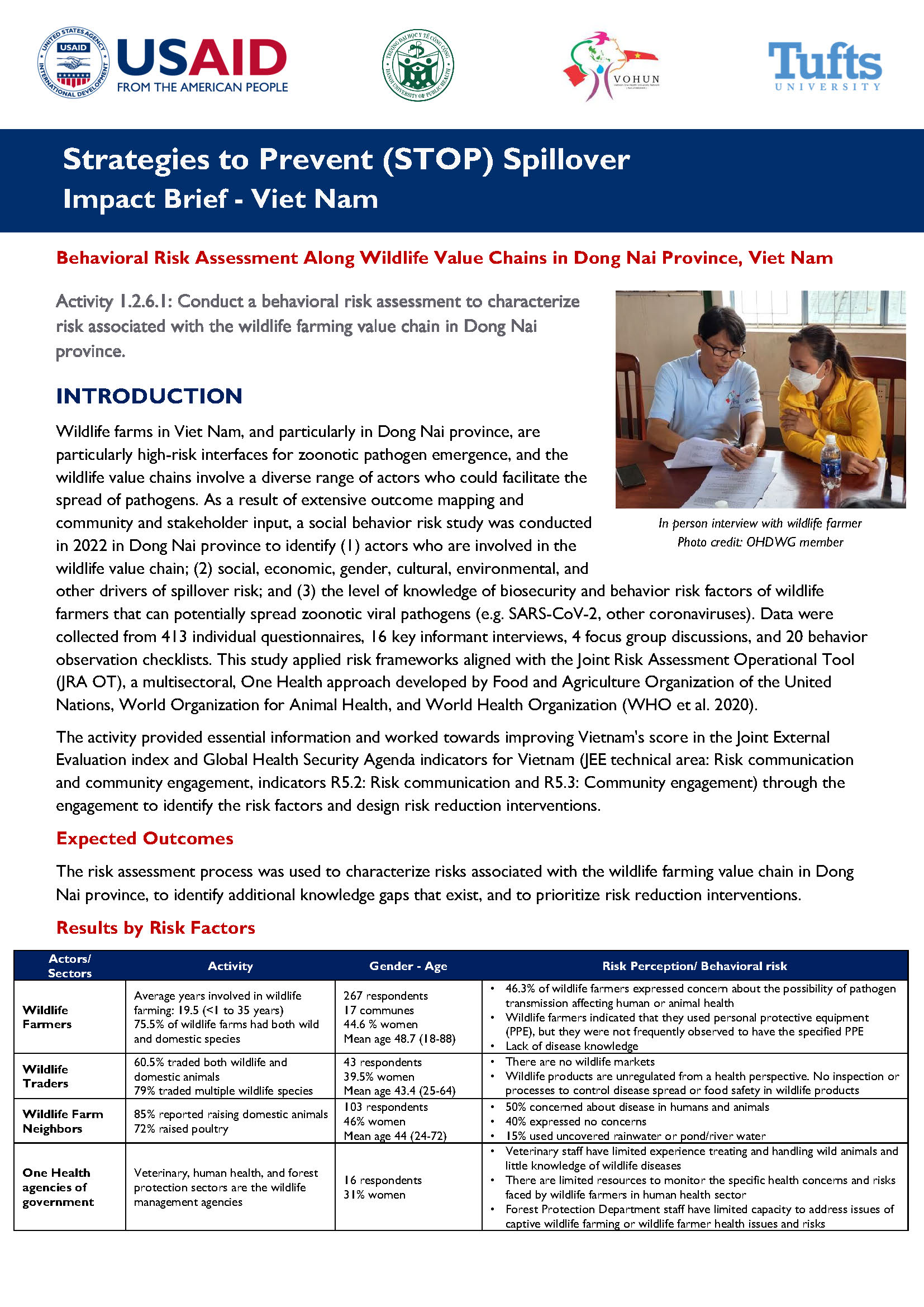
Impact Brief: Behavioral Risk Assessment Along Wildlife Value Chains in Dong Nai Province, Viet Nam
This brief summarizes a social behavior risk study that examined the risks associated with the wildlife farming value chain in Dong Nai province Viet Nam to identify knowledge gaps and prioritize risk reduction interventions.
This brief describes rodent monitoring that occurred in homes in six communities in Liberia. The data will improve understanding of the presence of rats and their access to domestic and public water and food storage in selected communities.
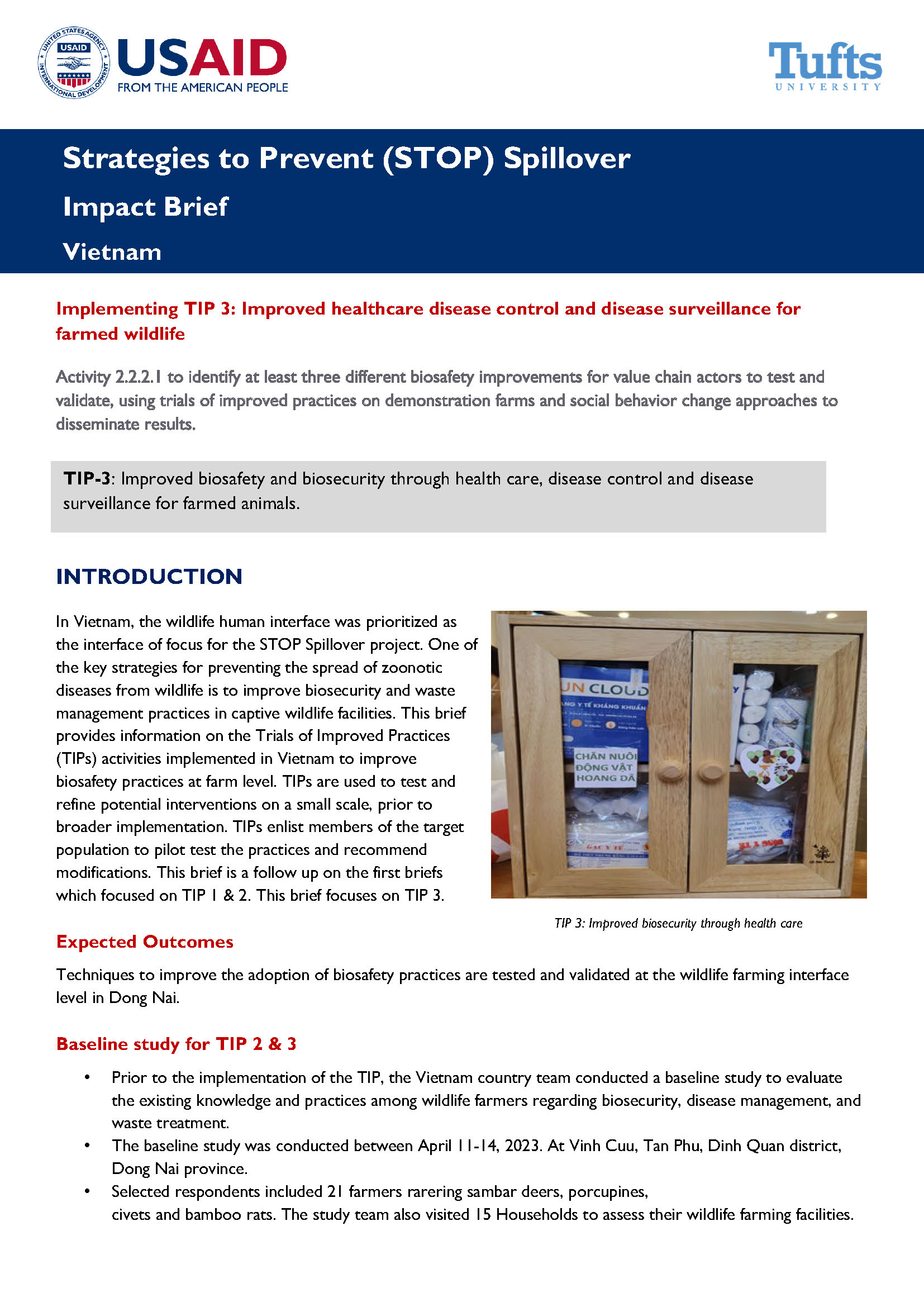
This brief summarizes implementation of a TIP (Trial of Improved Practices) related to improving biosecurity through healthcare disease control and disease surveillance in wildlife farms in Viet Nam. Following training, households that farmed civets, bamboo rats, porcupines, and Sambar deer farms in three districts committed to pilot biosecurity measures in animal husbandry, health monitoring, and disease prevention and treatment.
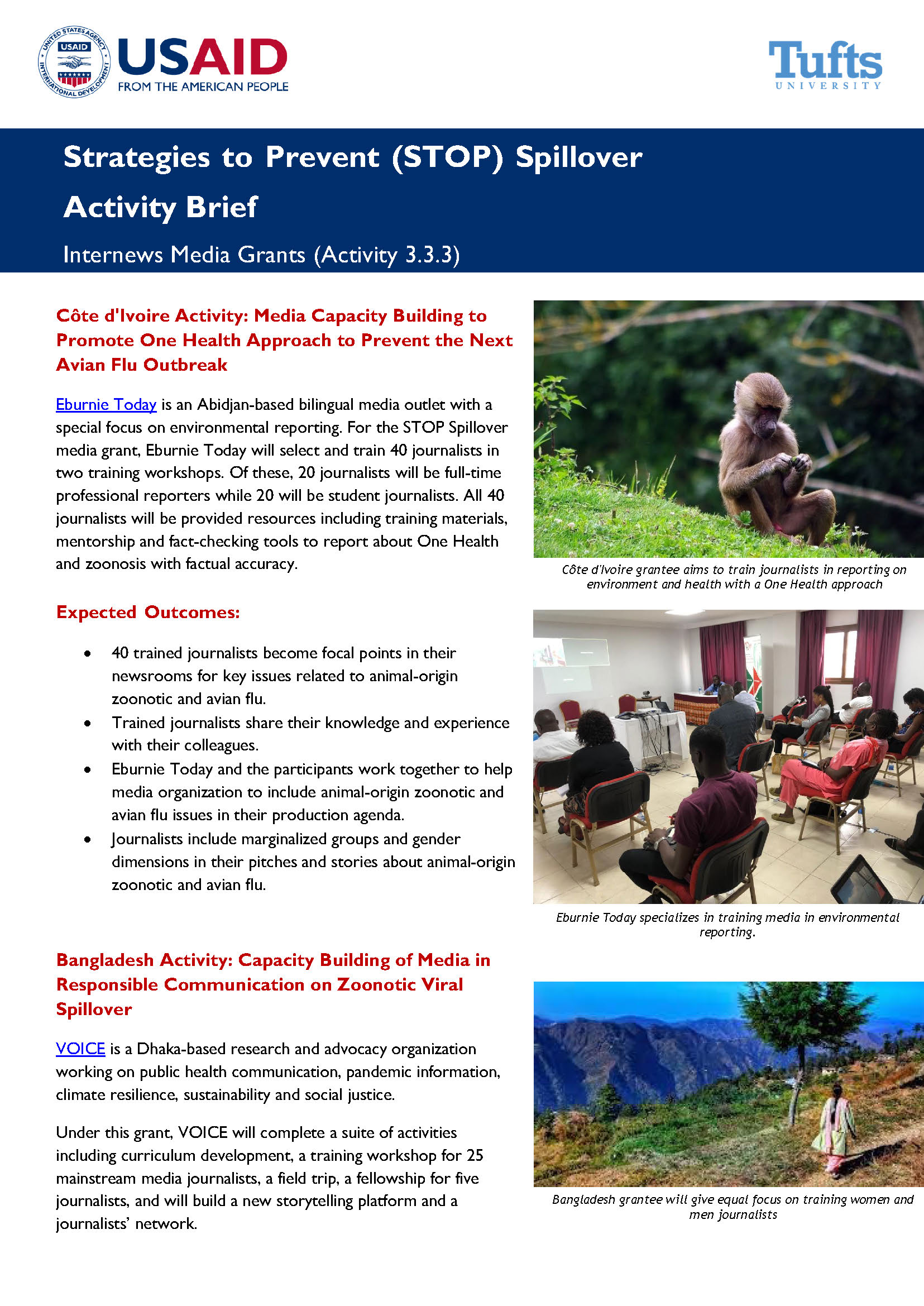
Impact Brief: Internews Media Grants
This brief summarizes trainings held to build the capacity of journalists in Côte d'Ivoire, Bangladesh, and Sierra Leone to understand and report about zoonotic diseases and One Health with accuracy.
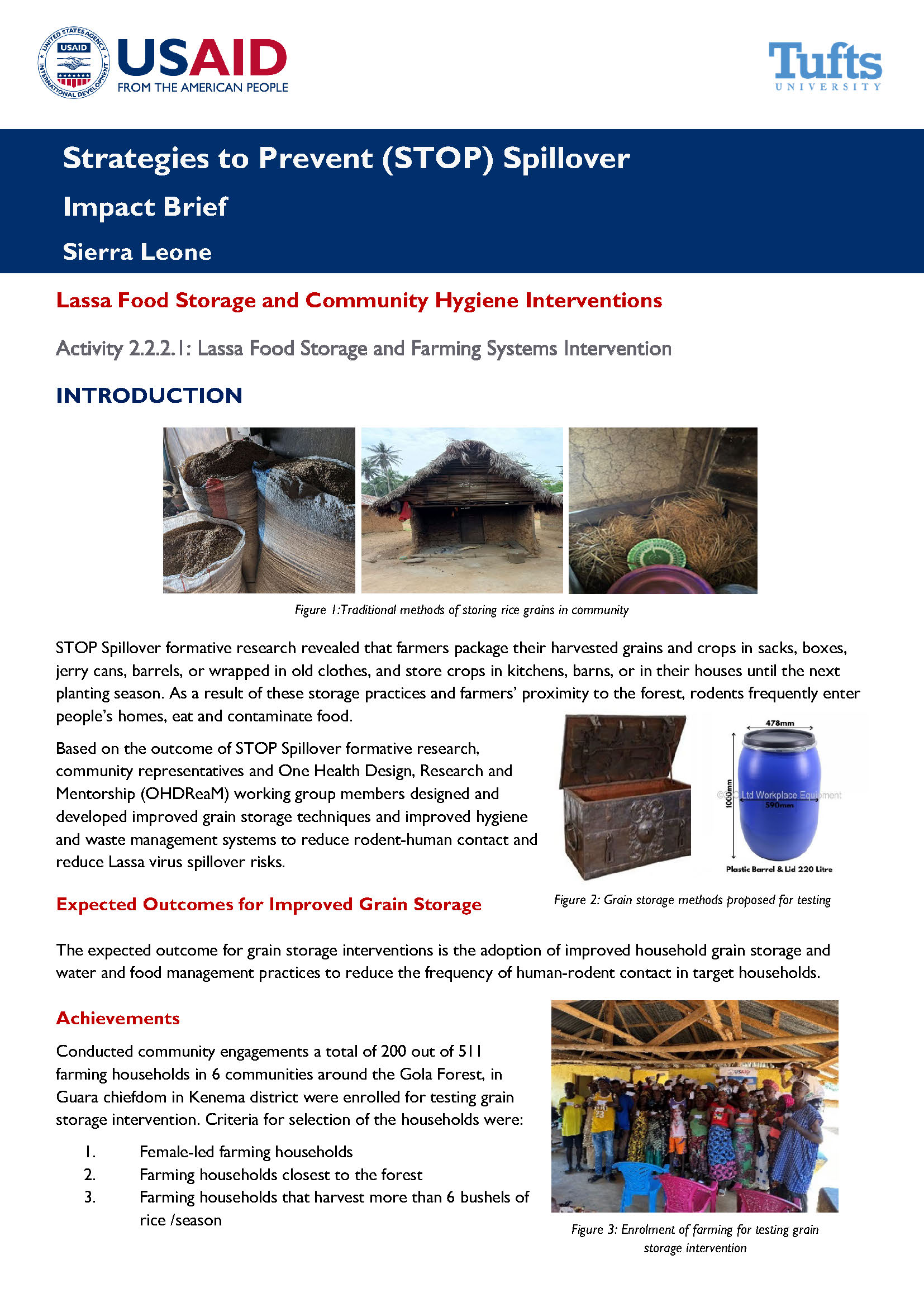
Impact Brief: Lassa Food Storage and Community Hygiene Interventions
This brief describes the testing of improved grain storage techniques and hygiene and waste management systems to reduce rodent-human contact and Lassa virus spillover risks in three communities in Sierra Leone.
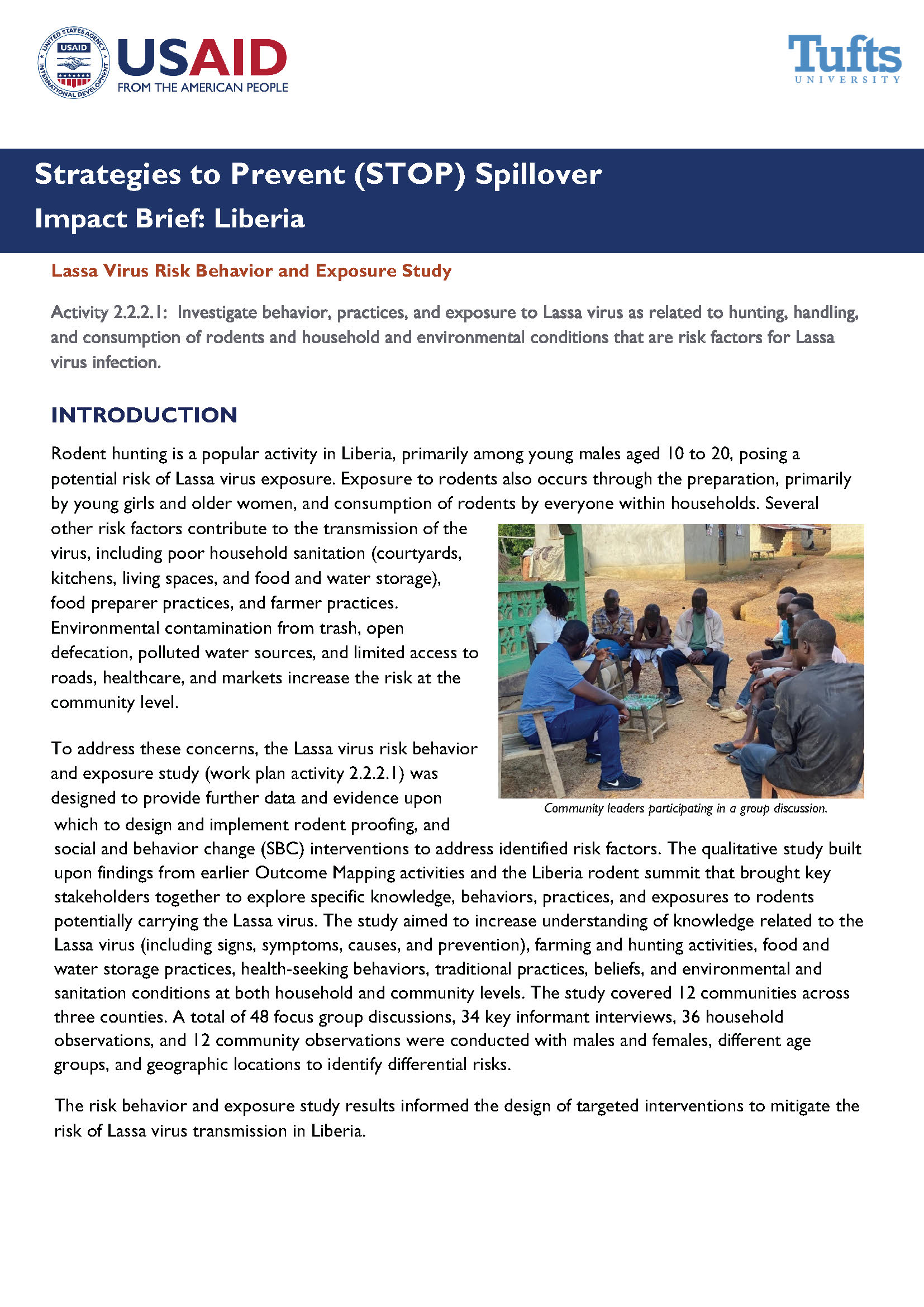
Impact Brief: Lassa Virus Risk Behavior and Exposure Study
This brief summarizes a Lassa virus risk behavior and exposure study conducted in 12 communities to increase understanding of knowledge related to Lassa virus, farming and hunting activities, food and water storage practices, health-seeking behaviors, traditional practices, beliefs, and environmental and sanitation conditions at the household and community level. The study included focus group discussions, key informant interviews, household observations, and community observations.
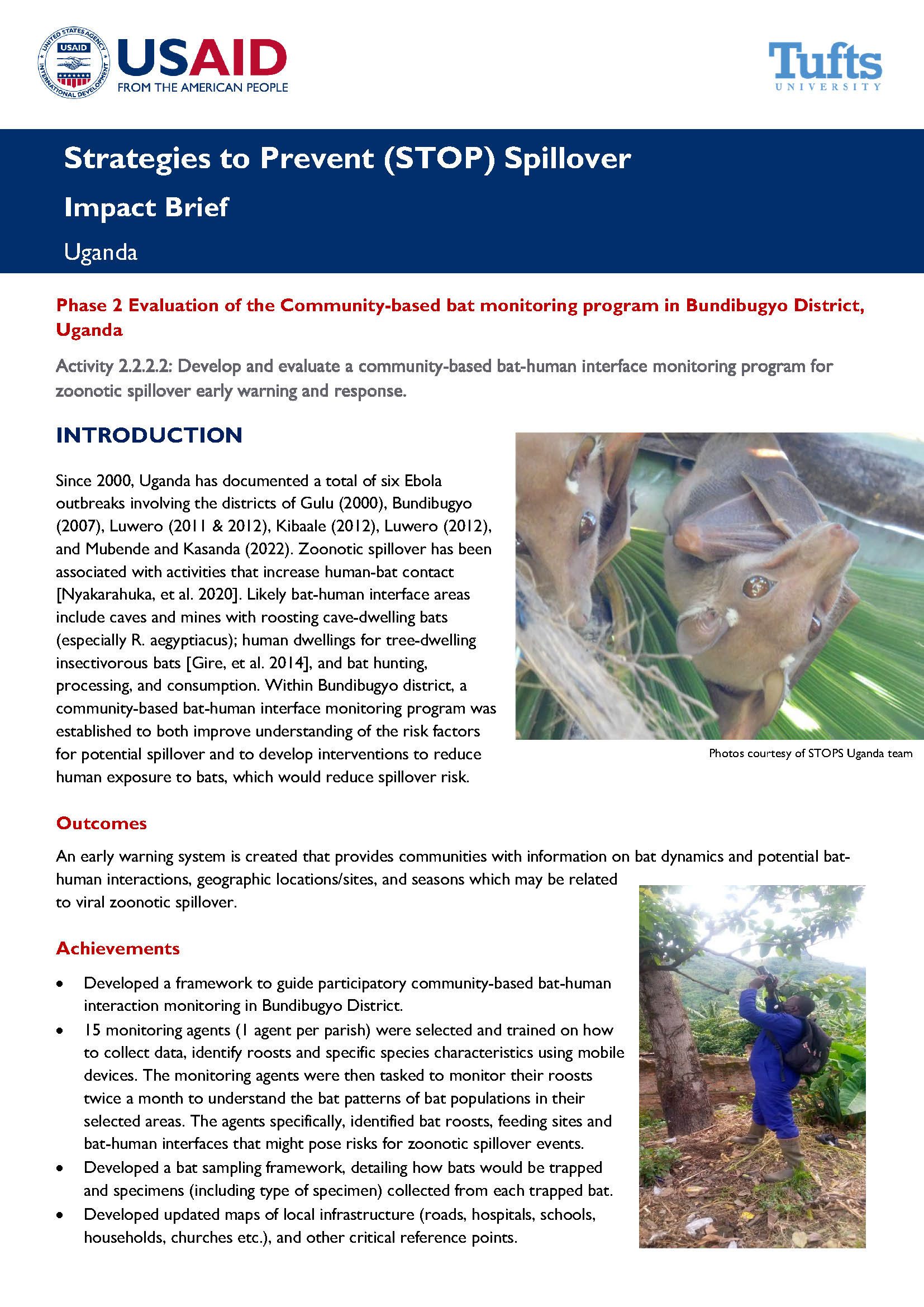
This brief describes a community-based bat-human interface monitoring program to improve understanding of the risk factors for potential spillover and to develop interventions to reduce human exposure to bats, which would reduce spillover risk.
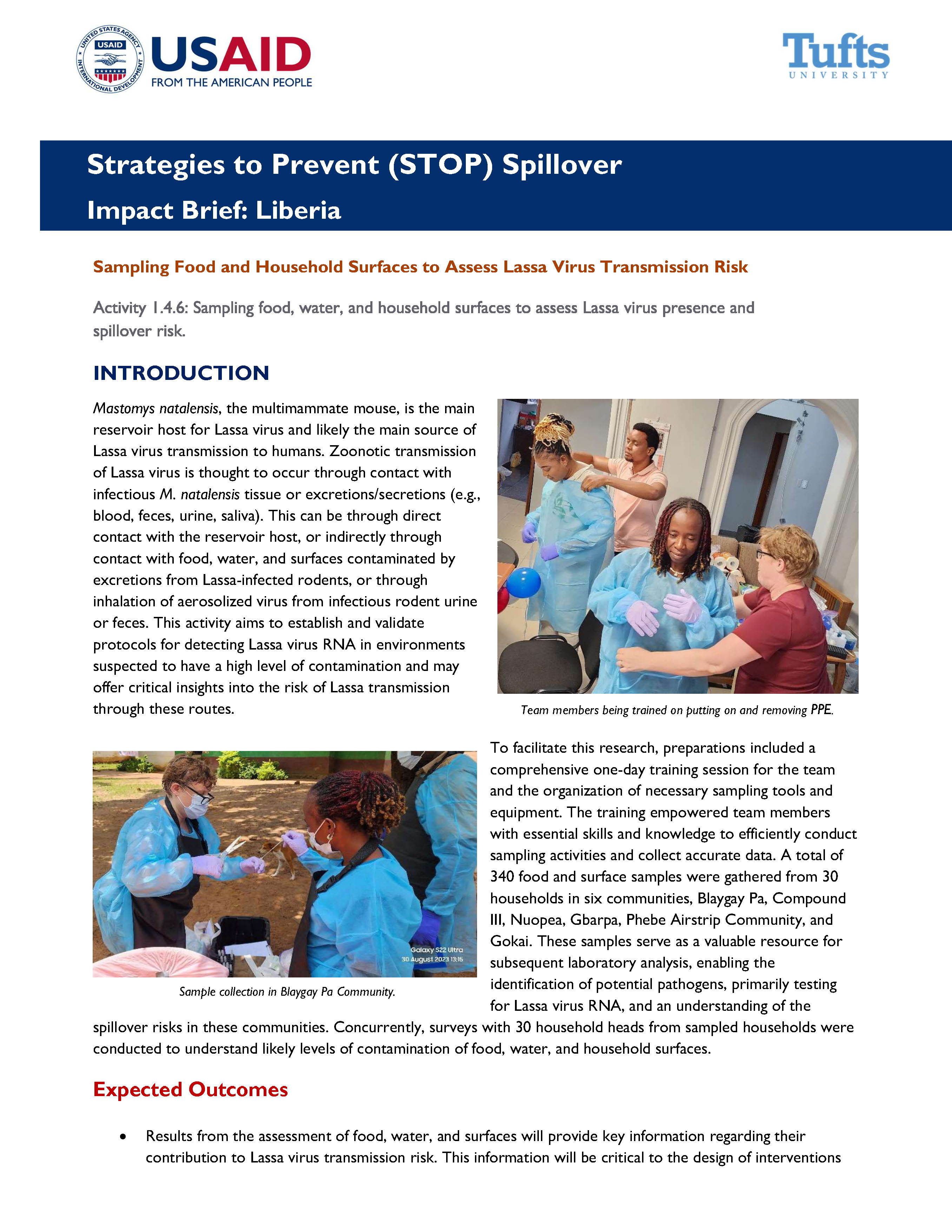
Impact Brief: Sampling Food and Household Surfaces to Assess Lassa Virus Transmission Risk
This brief describes an activity to gather food and surface samples from 30 households in six communities in Liberia. The samples underwent laboratory analysis, enabling the identification of potential pathogens (including testing for Lassa virus RNA). This information is critical to the design of interventions to reduce the risk of spillover from rodents to humans.
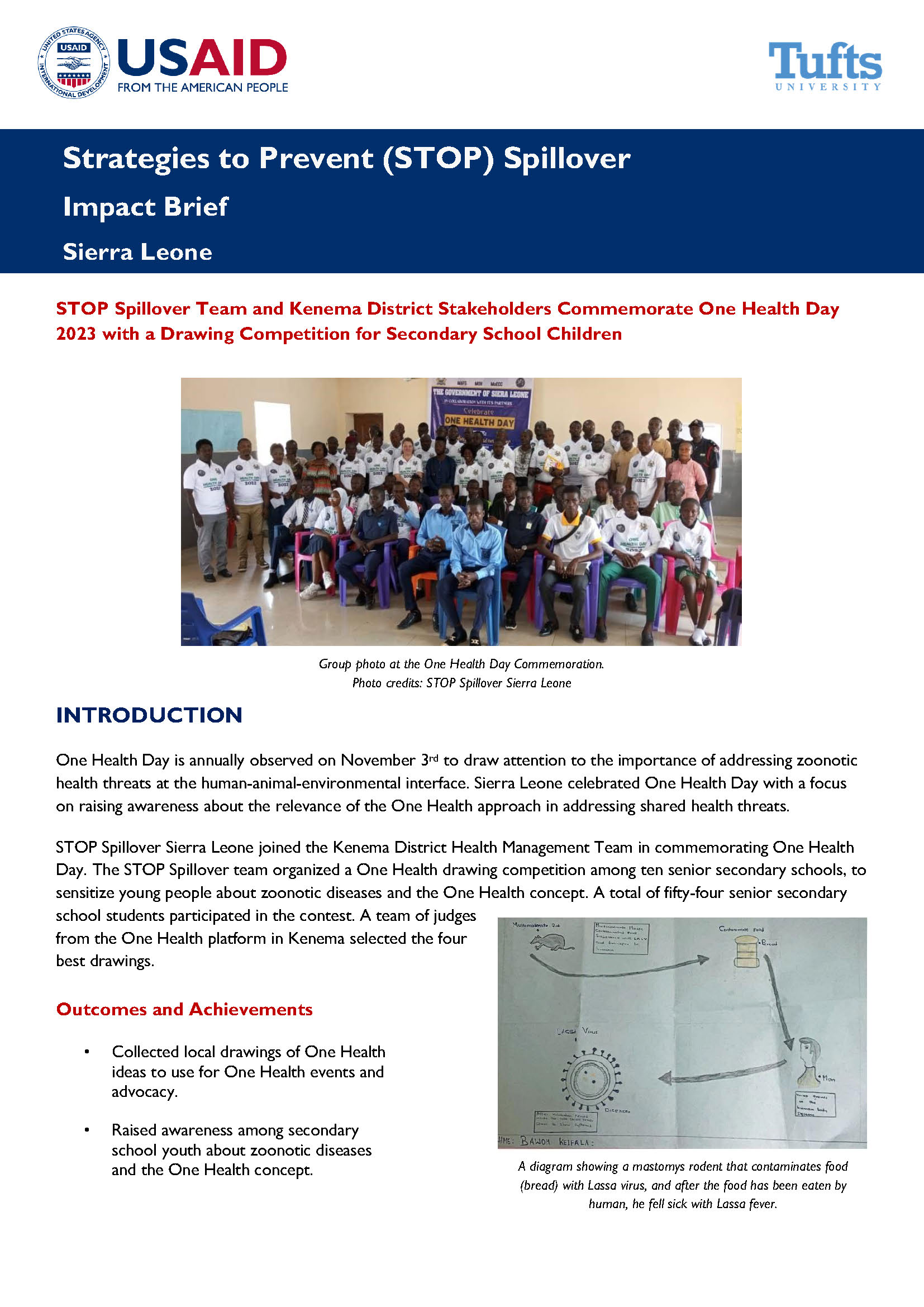
This brief describes a collaborative effort by the STOP Spillover Sierra Leone Country Team and the Kenema District Health Management Team to commemorate One Health Day. The activity featured a One Health drawing competition among ten senior secondary schools to sensitize young people to zoonotic diseases and One Health.
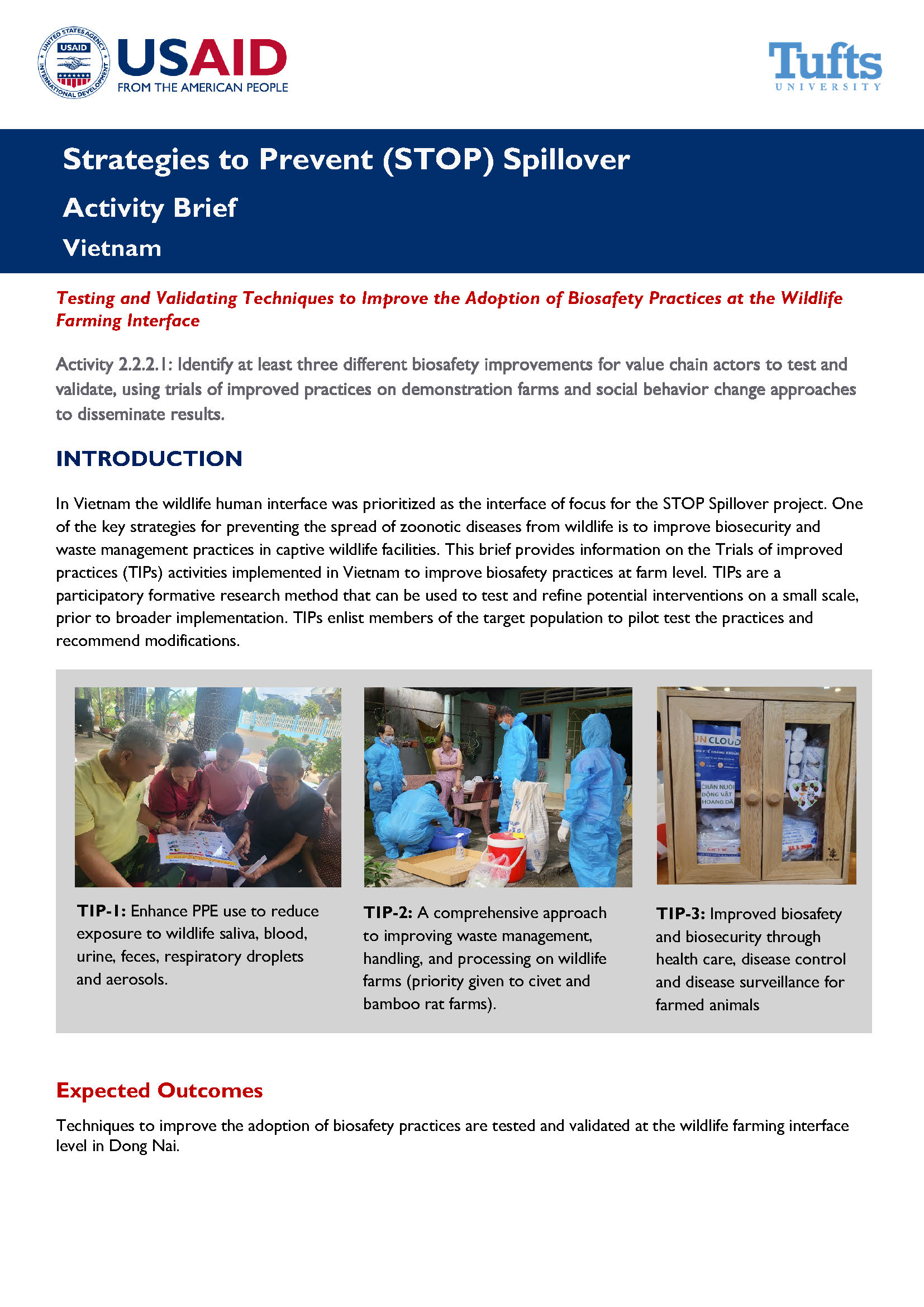
This brief summarizes three TIPS (Trials of Improved Practices) that were implemented in Dong Nai province in Vietnam to prevent the spread of zoonotic diseases from wildlife by improving biosecurity and waste management practices in captive wildlife facilities.
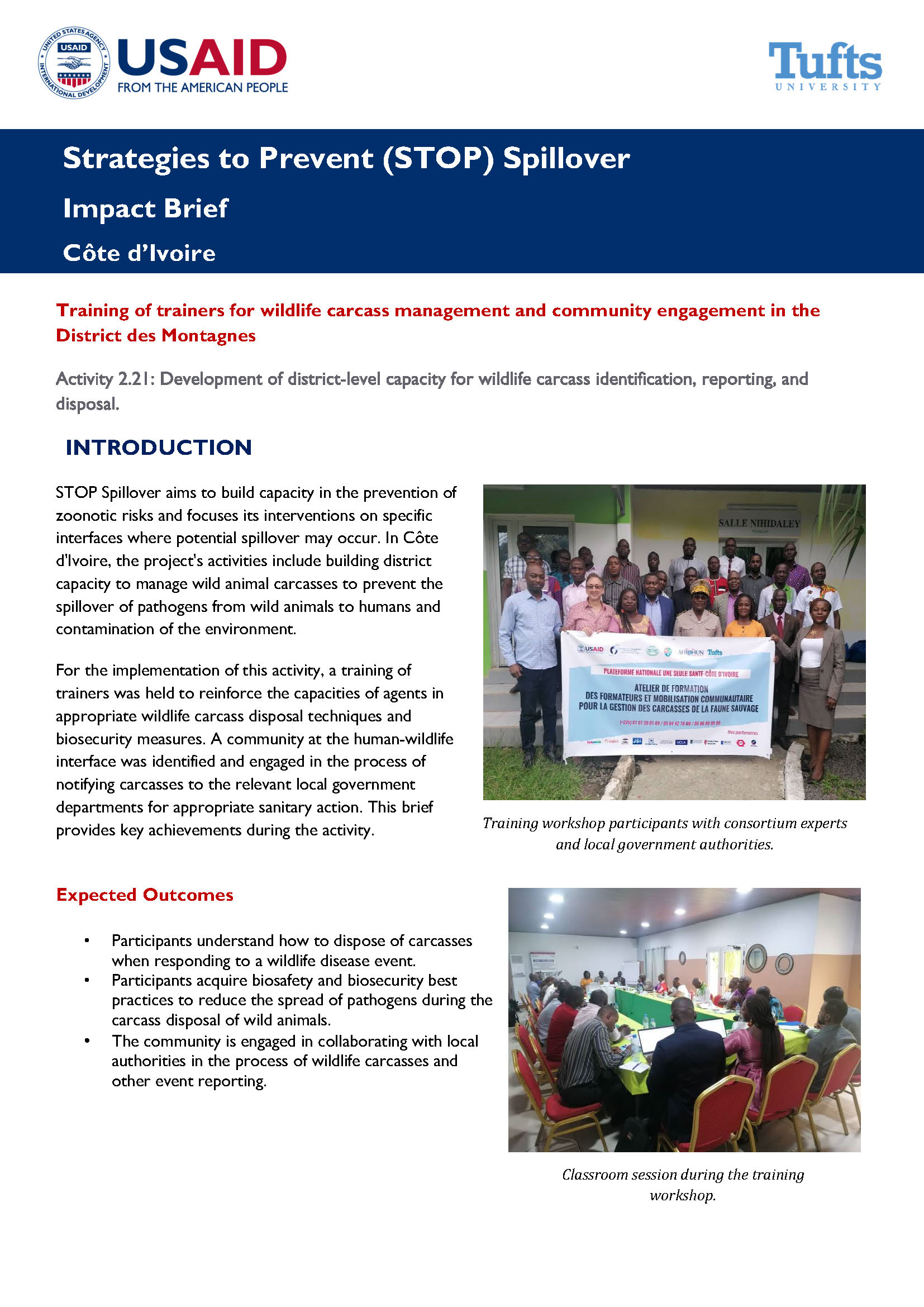
This brief focuses on a training of trainers held in Man in the District des Montagnes in Côte d'Ivoire. The training addressed methods of carcass disposal, decision criteria for managing wildlife carcasses, and biosafety and biosecurity precautions during carcass disposal.
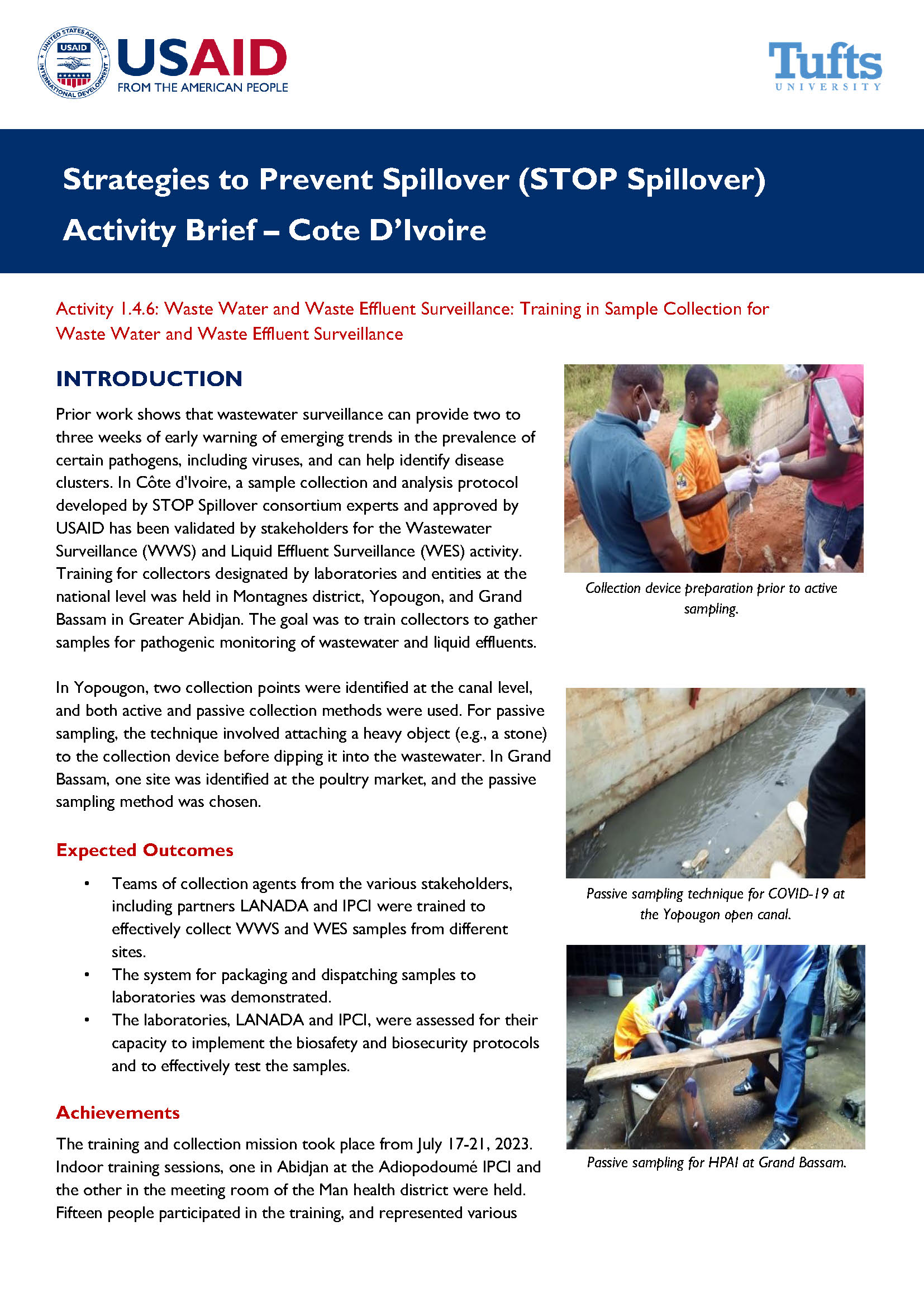
This brief describes training held for collection agents in Côte d'Ivoire to prepare them to collect waste water surveillance and liquid effluent surveillance samples for pathogenic monitoring.
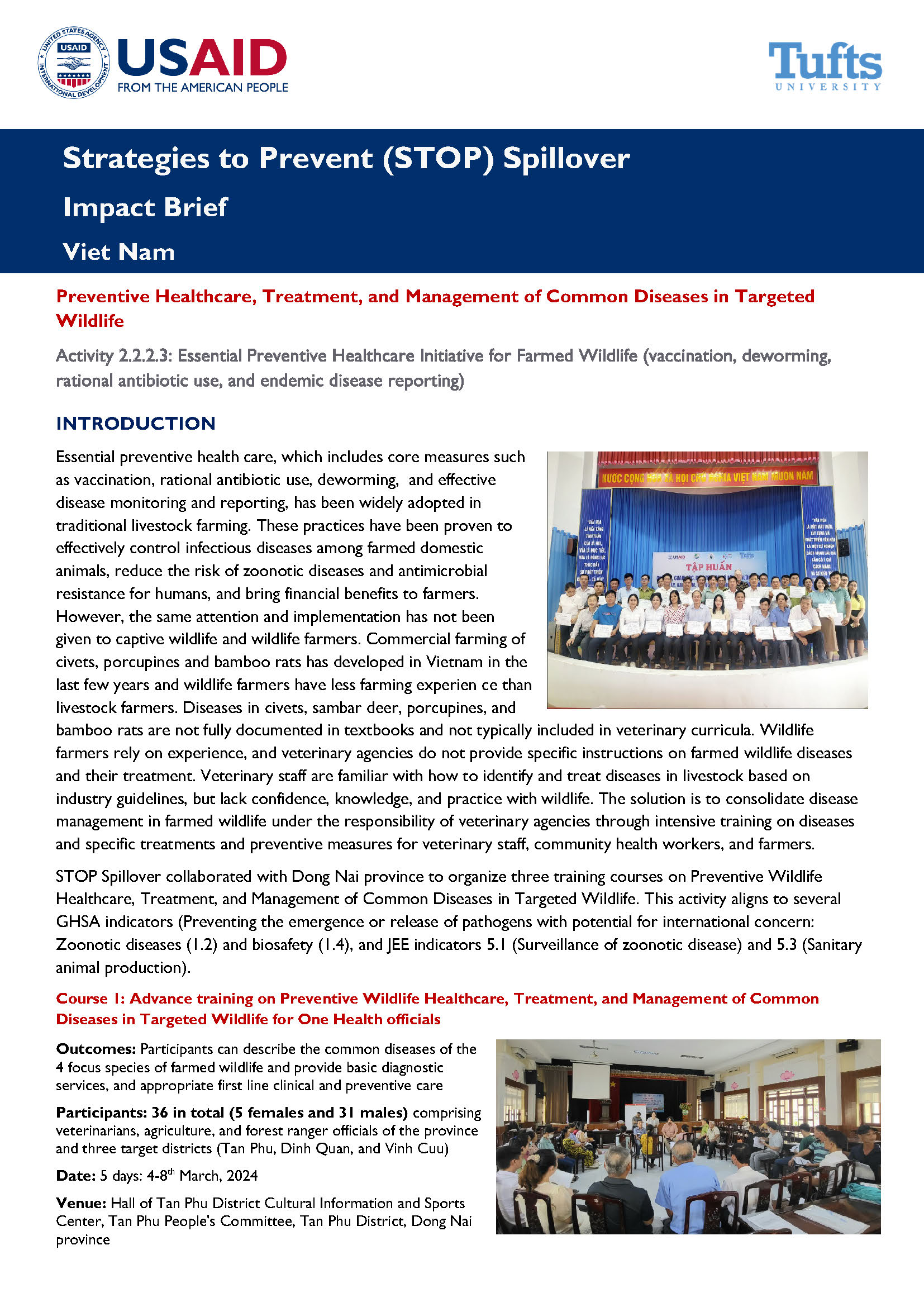
This brief summarizes three training courses on preventive wildlife healthcare, treatment, and the management of common diseases in targeted wildlife that were held for veterinary staff, community health workers, and farmers in Dong Nai province, Viet Nam.
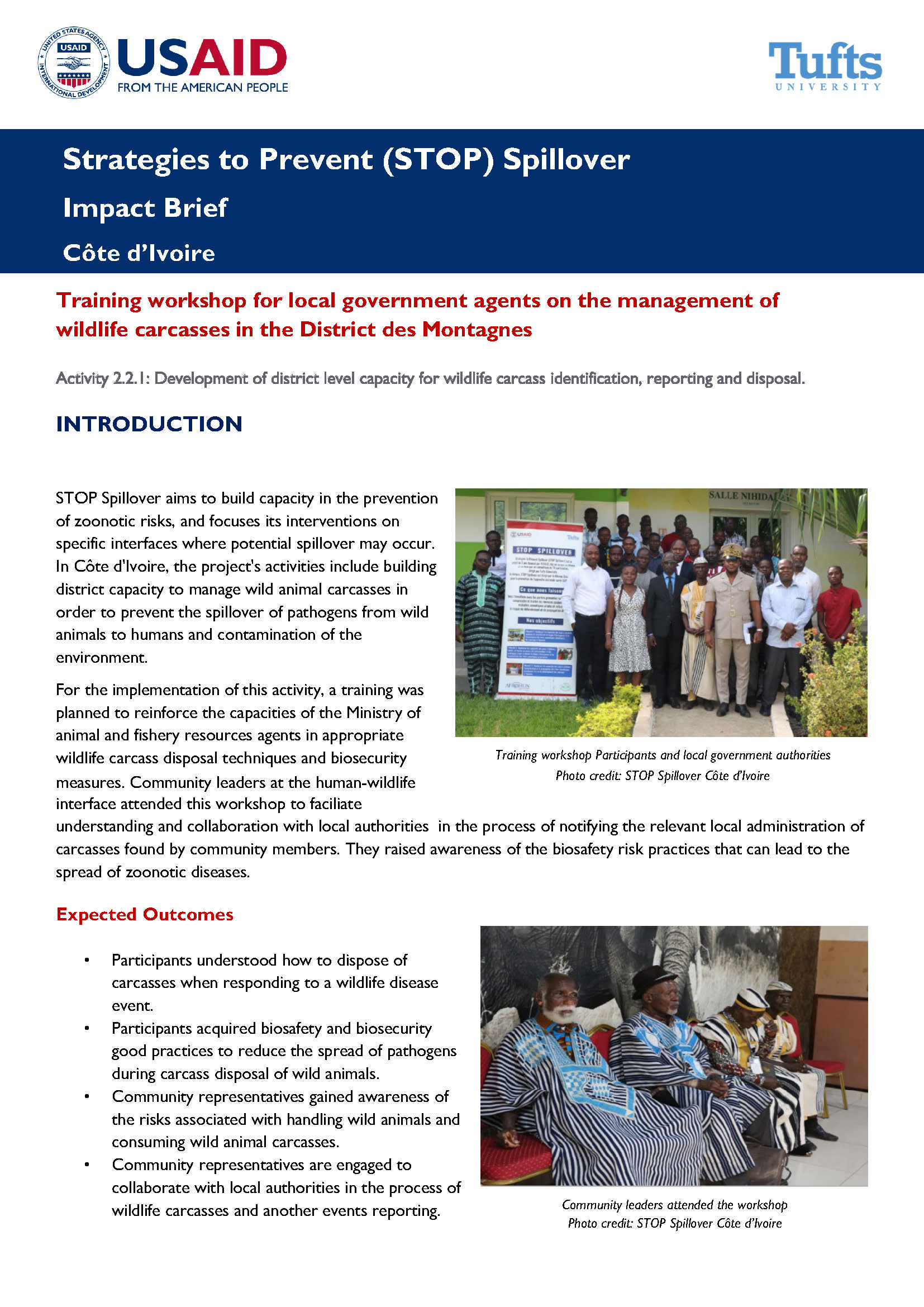
This brief summarizes a training held in Man in the District des Montagnes in Côte d'Ivoire for agents from the Ministry of Animal and Fishery Resources and community leaders on appropriate wildlife carcass disposal techniques and biosecurity measures to prevent the spillover of pathogens from wild animals to humans.